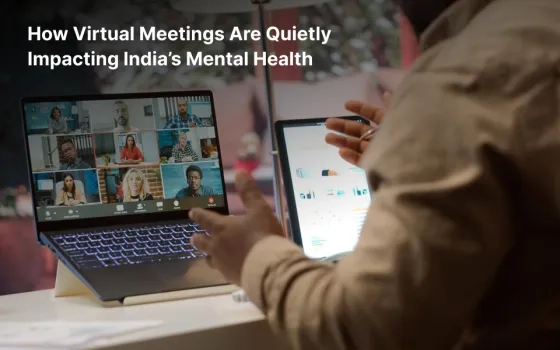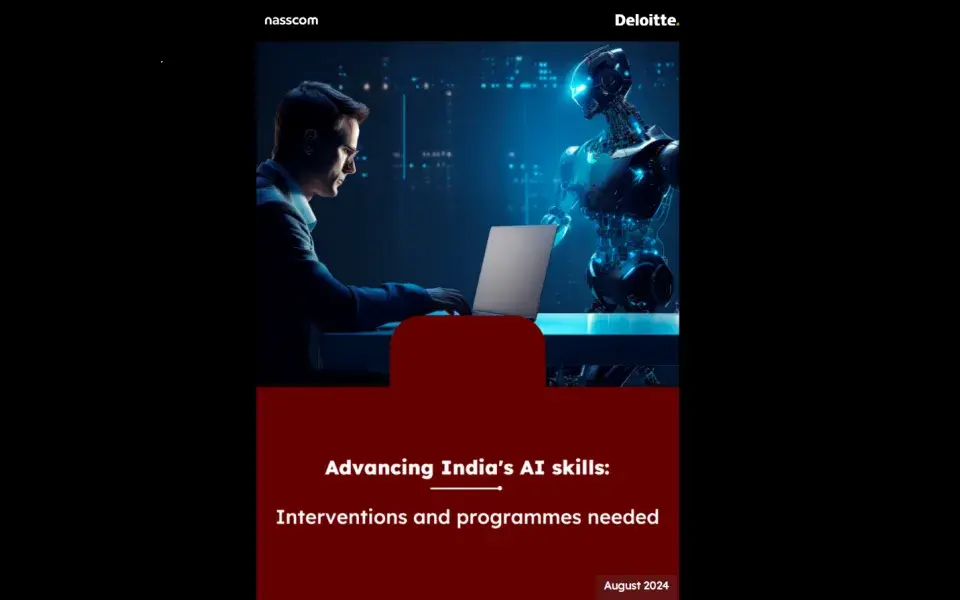This is a story of a startup based in India. I worked there in senior leadership role. The key USP of the company was its focus on technology innovation, thought-leadership, encourage people to become authority in their respective field and flat hierarchy. Flat hierarchy for this simple reason – it can be one of the biggest blocker for empowerment, innovation and decision-making in a startup. By having flat roles you can build a self-organized and empowered team, which then can take its own decisions.
Here are some of the snapshots of what we were looking for.
Employees were encouraged to consider organisation like a clean slate. They could write on it whatever they want as long as it brings improvement in status quo and a group of colleagues are convinced about the idea.
If anybody felt uncomfortable the way things are working in the organization, she could initiate a discussion in the company around the change and if idea makes sense, it gets implemented.
Considering all mentioned above, it was not a surprise to see a big focus on the following mantra in the company.
Scratch your own itch. If it’s itching you hard, fix it.

The essence is – people were encouraged to come up with solutions instead of just coming out with list problems. Everybody in the company was considered an equal partner in improving things.
The result was – anybody could start any initiative, which he/she thinks to be beneficial for the organization. Senior management helped in shaping up the ideas. However people themselves had to sell their ideas to fellow colleagues and garner support.
Bringing this kind of cultural change was a huge challenge for us considering the existing industry environment and inherited cultural mindset around.
To provide some impetus and catalyst to these cultural changes, we started promoting some activities like blog writing, creating videos on our technical expertise, communities around various emerging Software technologies, participating as speakers in various technical and Agile conferences, exploring new technologies and then doing sessions for the entire company.
The medium of the communication was through emails, face to face interaction on individual or group basis. People were asked to come forward and lead these initiatives.
There were some lighter initiatives too like guitar, LAN games etc which were necessary to break monotony of work place and do other things which were close to people’s heart. That gave a wholesome feeling to people, as they stopped looking office just as another workplace. Instead they started appreciating it as a personal space where they could also give shape to their passion or interests. This was like providing a space for people to bring their inner feelings and space to explore themselves more.
Initially everything worked as expected. However after few weeks or so, to my surprise, steam started dying down. Many people backed out when it came to do some work, though they expressed their keen interest initially.
Another important fact was – only few selected people were participating in most of the activities. Just 5-10 out of 60-70 people was not an encouraging number.
That brought a bit of frustration in me, as I couldn’t understand what went wrong. Though I tried understanding things like what exactly motivate people and experimented with those ideas but again that didn’t bring any significant result.
One fine day, I was talking to a colleague whom I thought could bring a lot on the table. However surprisingly, he wasn’t participating in any organization level initiative.
While having conversation with him, I expressed my frustrations and asked for his opinion. I said, “Rajesh, what are your views on current initiatives going on in the organization. Also what do think why people are not responding to them?”
In response whatever he told, surprised me.
He said, “Why do you expect people to come to you? There are many people who are not that outgoing in nature and feel shy to come out of their shell. Also many may not be interested in the initiatives you are talking about but may be interested in others which don’t exist as of now. Why don’t you talk to the people and understand what really motivates them instead of just focusing on what’s important to the organization?”

Honestly I never thought about it before and it opened my eyes. In order to implement this new revelation changed the approach completely.
For the moment I completely set aside the organizational goals. The focus now was to understand people and their passions.
The idea was great but honestly it didn’t seem simple enough to execute.
There were two different sides of coin. One, what exactly people want which is comparatively simpler to find.
However other bit – what exactly people want to do is not that simple to find. That may relate to their passions. However, many a times, even people themselves don’t know what exactly they are passionate about. They might tell you things based on context or who is sitting in front of them but in that process they might fake the reality.
Also in many cases, passion may not directly translate into achievements. In those cases, people try to downplay those aspects of their personality.
On experimental basis, I started having open-ended informal conversations with people on individual basis. The idea was to know a little bit more than just their professional persona. Also, it was important to make people comfortable in their own space.
Those conversations had hidden goals and focused on to identify:
- Their strengths
- Limitations
- Subjects they are passionate about. Things they really enjoy doing. Things they would like to do again and again.
While having these conversations, I realized that as people may not be aware about their own passions sometimes, one has to make conscious effort in discovering them.
That’s why my open-ended conversations were full of questions related to their personal and social life, their interests, things they like and dislike. Some questions were also related to their college or school life, a time when most of the people do what interests them the most.
During those conversations, I found that many people had lost their vigor and zeal in maintaining their interests because of changed priorities in their life. But rediscovering those lost interests in itself was very enriching experience.
For instance, one of the colleagues did a research software project to transform the voice of a person into someone else’s. He also created a software project, which could convert a human skull into some recognizable human face.
Yet when I looked back, I realized he never got any right opportunity during his last 1 year with the company. Also nobody ever knew about his hidden talents.
Similarly another colleague was very interested in organizing events in college and had already organized mammoth college event single-handedly. Yet another colleague was an editor of college magazine and was very good at writing.
Based on these conversations, I discovered people with many sorts of interests. All it required was to synergize their passions and energies into bigger organization level goals.
Organization is like a soccer team
One of the biggest myths in the any organization is – we just need players (read heroes) who could play at the front and score goals.
However the truth and the reality are way different.
You get fruit from a tree having a solid foundation. Similarly a100-stories building can’t sustain without having strong foundation.

Organisation is like a soccer team. In soccer, win is not only dependent on scored goals but also on saved goals. Soccer or any team game is incomplete without the collaboration of forwards, mid-fielders and defenders.
Scoring a goal is also a team-effort, which generally is perceived as just forward’s effort in large organizations. Defenders and mid-fielders lay the foundation based on which forwards score goals.
Similarly in an organization, it’s useless to push everybody to become forwards or heroes (key innovators, conference speakers etc) as everybody has their own strengths and weaknesses. Pushing people to do something towards perceived organizational goals may not always work.
This was one of the key ideas I tried pushing in company culture.
Passion Driven Work and Organizational Goals
The exercise of identifying passions in many ways was to recognize a great self-organized energy pool.
People generally love to do stuff they are passionate about. All a senior leader has to do is to synergize their energies towards organization vision and goals.
Organization needs everybody. Not only forwards but midfielders and defenders as well.
That’s the basic foundation of Passion driven work.
Results
Based on received inputs from colleagues, we started aligning their interests towards the long-term organizational goals. After some time we started getting sustainable and dramatic results.
At one point, people writing on corporate technical blog were around 5-10% of total number of people. That changed to around 50-60% people in the organization initially because of the interest shown by people passionate about it and then because of healthy competition among the colleagues. We started finding the involvement of people in various activities like hiring improvement, Big Data initiatives, Mobile apps creation, multimedia and marketing, software design competition, organizing events, innovation and speaking in conferences.
At the end of continued effort of more than 1-1/2 years, we could see a great outcome in a 60 people organization, which was comparable to an organization of more than 1000 people.
About the Author
Shrikant Vashishtha
Shrikant Vashishtha is the Director of Engineering for GlobalLogic’s CTO department. He has over 15 years of experience in the IT industry and is currently based in Noida, India. Shrikant is a generalist and an active thought leader in Agile and technology spaces. He currently works as an Agile coach for large portfolios and has in the past worked as an architect for large-scale software programs for Fortune 50 companies. He is frequent speaker at Agile & technical events and publishes blogs on http://www.agilebuddha.com and https://www.globallogic.com/blog/ . His current areas of interest are Lean Startup, Lean UX, Scaled-Agile, Continuous Delivery, DevOps and Acceptance Test Driven Development.



























